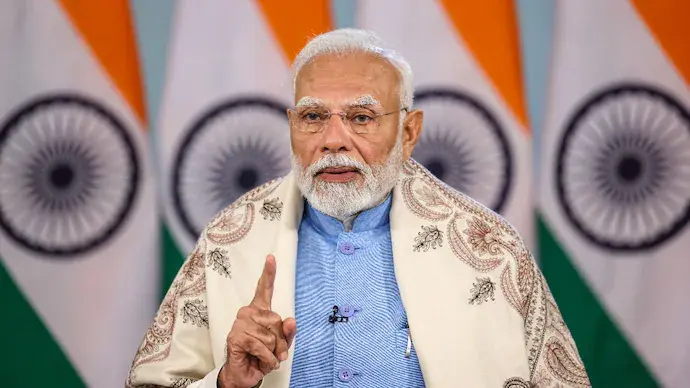New Delhi [India], January 10: Prime Minister Narendra Modi discussed his concept of “minimum government, maximum governance” in a podcast with Zerodha Co-founder Nikhil Kamath, stating that the principle is often misunderstood. He clarified that it aims to speed up government processes, not reduce the number of ministers or employees. To facilitate this, he introduced separate ministries for skill development, cooperatives, and fisheries.
PM Modi explained that his approach included removing 40,000 compliances to streamline departmental work. “When I say minimum government, my point is to increase the speed of governance by reducing redundant regulations. If one department has it, use it for all,” he said.
He also mentioned his efforts to abolish 1,500 outdated laws and revise laws that criminalized certain actions as part of his vision for efficient governance. “This is my idea of minimum government and maximum governance,” he added.
On India’s technological progress, PM Modi praised the country’s ability to democratize technology, asserting that India has set a global example in this regard. “In just 30 seconds, I can transfer money to the accounts of 100 million farmers or distribute subsidies to 13 crore people. All you need is a mobile phone,” he said, highlighting India’s technological strides in recent years.
Reflecting on the transformation of India’s global standing, PM Modi recalled his 2005 statement when he predicted that the world would one day stand in line for an Indian visa. “Now, in 2025, I can see that India’s time has come,” he remarked.
PM Modi also shared an anecdote from his recent visit to Kuwait, where a labourer asked him about the prospect of an international airport in his district. “This aspiration will make India a ‘Viksit Bharat’ in 2047,” he said.
Addressing global conflicts, PM Modi reiterated India’s stance for peace rather than neutrality, citing his diplomatic efforts during the Ukraine crisis. He emphasized India’s growing credibility and trust with world leaders, particularly during the COVID-19 pandemic, where India’s coordinated evacuation efforts helped citizens and neighbors alike. “If a fellow countryman is in trouble anywhere in the world, it is our responsibility to help,” he added.


